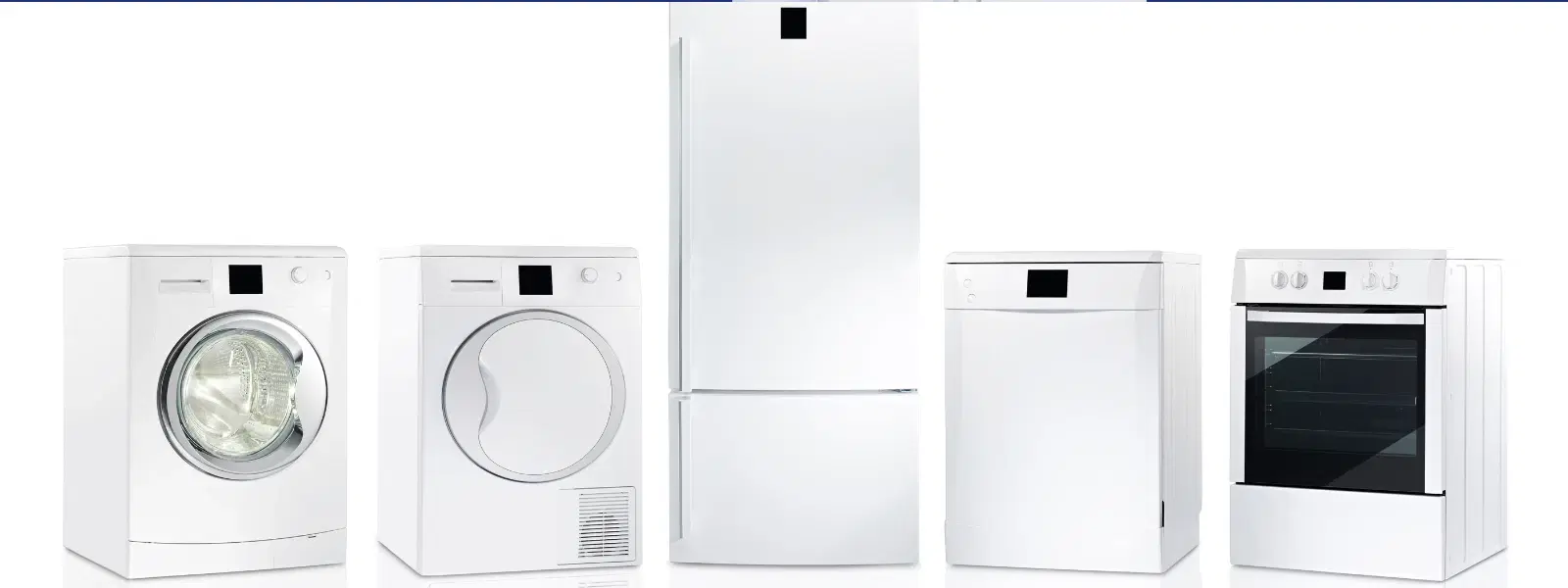
Home Appliances
•04 min read
Imagine a world where your home appliances not only perform better, but also save energy, operate quietly and last longer. Digital inverter technology means a breakthrough in appliance efficiency, adjusting motor speeds based on how much power is needed at any moment. In this post, you will discover what digital inverter technology means, how it works, its advantages and its applications in our everyday appliances ranging from refrigerators to air conditioners and washing machines.
Digital inverter technology means smart control over motor speed. Unlike conventional technology that runs at a fixed speed, this innovation continuously adjusts motor performance in response to varying demands. With this level of precision, today’s appliances can achieve higher energy efficiency and reliability while performing optimally under different conditions.
Traditional systems utilise motors that maintain a constant speed regardless of requirement. Digital inverter compressors, on the other hand, modulate their speed according to the load, leading to noticeable differences in energy efficiency, performance and lifespan. This dynamic adjustment not only optimises energy consumption but also reduces stress on the appliance parts, thereby extending their longevity.
The key to understanding how digital inverter technology works lies in its use of variable-speed motors. In appliances like refrigerators and air conditioners, inverter compressors adjust their speed to maintain a consistent environment. This means that whether there’s a minor fluctuation in temperature or demand, the compressor responds instantly, ensuring smooth operation without frequent on-off cycles.
Digital inverter technology in refrigerators creates consistent cooling while reducing energy waste. Meanwhile, digital inverter air conditioners offer precise temperature control and quieter operation. Even washing machines benefit by optimising spin cycles and reducing vibrations. These smart appliances with inverter technology deliver enhanced performance tailored to modern household needs.
Did You Know?
Digital inverter compressors can save up to 30% more energy compared to conventional compressors, making them a game-changer for eco-friendly living.
One of the most attractive aspects of digital inverter technology is its impressive energy saving capability. By adjusting the motor speed based on requirement, these appliances stand out as power saving appliances with inverter technology that significantly reduce electricity consumption. For households seeking to cut down on energy bills, adopting these smart systems can lead to noticeable long-term savings.
Another benefit of digital inverter technology means a quieter home environment. With the intelligent modulation of motor speed, these appliances produce less noise during operation, ensuring your living space remains peaceful. In addition, by minimising the stress on electrical components, these systems contribute to an extended lifespan of the appliances. This results in fewer maintenance issues and reduced overall wear and tear.
Digital inverter technology in appliances helps reduce carbon footprints by optimising energy use. By cutting down on unnecessary power consumption, these appliances play an essential role in environmental sustainability. Governments and consumers alike are turning to energy-efficient options that not only benefit budgets but also our planet.
Digital inverter technology in refrigerators ensures that cooling is maintained in a consistent manner while saving energy. This constant adjustment protects food quality and reduces the frequency of compressor on-off cycles, which in turn extends the appliance’s life. Energy efficiency with digital inverter technology is especially useful for families wanting dependable performance alongside cost savings on electricity bills.
Digital inverter air conditioners optimise cooling by adjusting power usage to maintain a steady target temperature. Whether it’s during the blazing heat of summer or on cooler evenings, these systems adapt quickly, making a significant difference in reducing electricity bills. The silent operation ensures that the comfort of your living space is never disrupted.
In washing machines, digital inverter technology means efficient water and energy use, adapting the motor speed to different load sizes and fabric types. The result is a system that performs optimally while reducing noise and mechanical stress, which is crucial in extending the appliance’s lifespan and achieving consistent washing results every time.
While the upfront cost of appliances featuring digital inverter technology may be higher compared to their conventional counterparts, the long-term benefits more than compensate for the added investment. Enhanced energy efficiency, improved performance and longer appliance durability culminate to form a compelling argument for choosing these advanced systems.
There are common myths that digital inverters are limited to refrigerators or that their energy savings are insignificant. In reality, digital inverter technology means dynamic power management across a range of appliances from air conditioners to washing machines. With such a versatile range of applications and energy-saving advantages, it’s time to dispel these misconceptions and embrace the future of smart home technology.
A digital inverter adjusts the motor speed based on the actual requirement, which contrasts with a normal inverter that typically operates at a fixed speed. This results in superior energy efficiency and better performance.
The primary concern is the higher initial purchase price. However, the energy savings and extended appliance lifespan make it a worthwhile investment in the long run.
This technology optimises the motor's operation during different washing cycles, reducing noise and wear while enhancing energy efficiency.
Yes, digital inverter technology significantly cuts down on electricity consumption by continuously adjusting power usage to match task-specific requirements.
Digital inverter technology is revolutionising the way home appliances function. With energy efficiency, quieter operation and enhanced durability, it is paving the way for a more sustainable living environment. As modern households strive for practical yet advanced solutions, these smart appliances with inverter technology offer a reliable and innovative approach to everyday tasks. By understanding what digital inverter technology means and how it operates, you can make informed decisions that benefit both your lifestyle and your energy bills. Embrace the future of appliances and enjoy the additional perks, such as earning NeuCoins on every smart purchase with Tata Neu, which further propels your journey towards a more rewarding and efficient lifestyle.